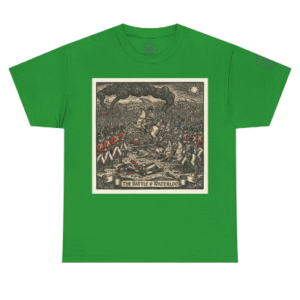Winter brings cozy sweaters, hot drinks, and crisp air—but it can be harsh on your hair. Low temperatures, dry indoor heating, and cold winds strip moisture from your strands, leaving hair dry, brittle, frizzy, and prone to breakage. Even people with naturally healthy hair notice dullness and split ends in winter.
Proper winter hair care isn’t just about using a conditioner; it’s about nourishing, protecting, and maintaining your hair’s health during the harsh months. In this guide, we’ll walk you through practical and actionable tips to keep your hair soft, strong, and shiny all winter long.
Moisturize Regularly for Deep Hydration
Winter air is dry, and hair loses moisture faster than in other seasons. To prevent dryness:
- Deep Conditioning Masks: Use a hydrating mask at least once a week. Ingredients like shea butter, coconut oil, and argan oil help restore moisture and strengthen hair from root to tip.
- Leave-In Conditioners: After washing, apply a leave-in conditioner. It not only locks in moisture but also protects against friction from scarves or hats.
- Natural Hair Oils: Massage your scalp and hair with oils such as argan, jojoba, or almond oil. Focus on the ends, which are prone to splitting in winter.
Tip: Apply a hot oil treatment once a week. Warm the oil slightly and leave it for 30–60 minutes before washing. This helps your hair absorb nutrients and combat dryness effectively.
Reduce Heat Styling to Prevent Damage
Heat styling tools—like blow dryers, straighteners, and curling irons—can further dry out hair in winter.
- Air Dry Whenever Possible: Allow hair to dry naturally instead of using a blow dryer on high heat.
- Use Heat Protectants: Before styling, spray or apply heat protectants to reduce damage.
- Limit Daily Styling: Try using protective hairstyles like loose buns or braids that require minimal heat.
Tip: If you must use heat, keep the temperature low and never style wet hair with direct heat—it weakens strands and increases breakage.
Choose Hair Care Products Wisely
The right products make a big difference in winter hair health:
- Sulfate-Free Shampoos: Gentle shampoos preserve natural oils and prevent scalp dryness.
- Moisturizing Shampoos and Conditioners: Ingredients like shea butter, glycerin, and aloe vera keep hair soft and hydrated.
- Avoid Alcohol-Based Products: Hair sprays and gels with high alcohol content can strip moisture, worsening dryness.
Pro Tip: Look for products labeled “hydrating,” “repair,” or “winter care” to ensure extra nourishment during colder months.
Protect Hair from Cold Weather
Cold winds, snow, and indoor heating can make hair frizzy and brittle. Protect your strands by:
- Wearing Hats or Scarves: Choose silk or satin lining to reduce friction and static. Wool or cotton may cause hair to tangle and break.
- Never Go Outside With Wet Hair: Moist strands freeze in cold temperatures, increasing brittleness.
- Use a Humidifier Indoors: Adding moisture to dry heated rooms prevents hair and scalp from drying out.
Extra Tip: Protective hairstyles under hats (like loose braids or buns) reduce breakage caused by friction and static electricity.
Keep Your Scalp Healthy
A nourished scalp is essential for strong, healthy hair. Winter can lead to dandruff, itchiness, and dryness:
- Regular Scalp Massages: Massage with warm oils to stimulate blood flow and promote growth.
- Gentle Brushing: Use a wide-tooth comb or soft-bristle brush to detangle without breaking hair.
- Avoid Tight Hairstyles: Ponytails and tight buns stress hair roots and can lead to hair loss.
Pro Tip: Herbal rinses like hibiscus, amla, or fenugreek water can soothe dry scalp and enhance shine.
Trim Hair Frequently
Regular trims every 6–8 weeks remove split ends and prevent further damage. Even if you’re growing your hair, trimming ensures that dry ends don’t travel up the hair shaft, maintaining smoothness and strength.
Tip: A small trim each month is better than waiting too long and losing length due to damaged ends.
Stay Hydrated and Eat Nutrient-Rich Foods
Hydration and nutrition play a major role in winter hair health:
- Vitamin E: Nuts, seeds, and spinach nourish hair follicles.
- Omega-3 Fatty Acids: Fish, flaxseed, and chia seeds maintain scalp hydration.
- Biotin: Eggs, avocados, and nuts support hair growth and strength.
- Water Intake: Drink at least 2–3 liters daily to keep hair and scalp hydrated from the inside out.
Tip: Include seasonal fruits and vegetables rich in antioxidants to protect hair from environmental stressors.
Sleep on Silk or Satin Pillowcases
Cotton pillowcases cause friction that leads to hair breakage and frizz. Switching to silk or satin allows hair to glide smoothly while sleeping, reducing split ends and retaining natural oils.
Extra: You can wrap your hair in a silk scarf at night for extra protection, especially if your hair is long.
Avoid Over-Washing Hair
Frequent washing strips natural oils that keep hair hydrated. During winter:
- Wash hair 2–3 times a week only.
- Use lukewarm water instead of hot water, which can dry out hair.
- Follow with conditioner to lock in moisture.
Tip: Use dry shampoo between washes if you need to manage oil or sweat without over-washing.
Protective Hairstyles for Winter
Protective styles reduce exposure to harsh conditions:
- Braids or Twists: Keep hair secure and minimize friction from scarves or jackets.
- Low Buns or Ponytails: Gentle styles prevent breakage and tangling.
- Loose Styles: Allow hair to breathe while still offering protection.
Pro Tip: Avoid very tight ponytails or buns, as these can stress hair roots and cause breakage.
Incorporate Winter-Friendly Treatments
Adding seasonal treatments improves hair resilience:
- Hot Oil Treatments: Warm oils penetrate hair shafts to restore moisture.
- Protein Treatments: Strengthen hair and prevent winter breakage.
- Herbal Rinses: Hibiscus, fenugreek, and amla water boost shine and scalp health naturally.
Extra Tip: Rotate treatments—use oils once a week, protein treatments bi-weekly—to maintain balance without overloading hair.
Reduce Stress on Hair
Stress and lifestyle habits affect hair health:
- Exercise Regularly: Boosts circulation and delivers nutrients to hair follicles.
- Adequate Sleep: Supports hair growth and repair.
- Limit Chemical Treatments: Coloring and bleaching can weaken hair during cold months.
Tip: Practice meditation or yoga to reduce stress, which indirectly helps in preventing hair fall.
Be Mindful of Hair Accessories
- Avoid rough elastics and metal clips that can snag hair.
- Use soft scrunchies or fabric-covered bands to minimize breakage.
- Pins or clips should not pull hair tightly, especially near the crown.
Extra Tip: Opt for hair accessories that are gentle and winter-friendly—velvet scrunchies work well during cold months.
Conclusion
Winter hair care is about hydration, protection, and gentle handling. By following a consistent routine, using the right products, and nourishing both hair and scalp, you can combat the dryness and brittleness that cold weather brings.
Remember: Moisturize, protect, nourish, and trim regularly. Incorporate winter-friendly treatments, eat nutrient-rich foods, and use gentle styling practices. With these steps, your hair can stay healthy, strong, shiny, and frizz-free all season long.







